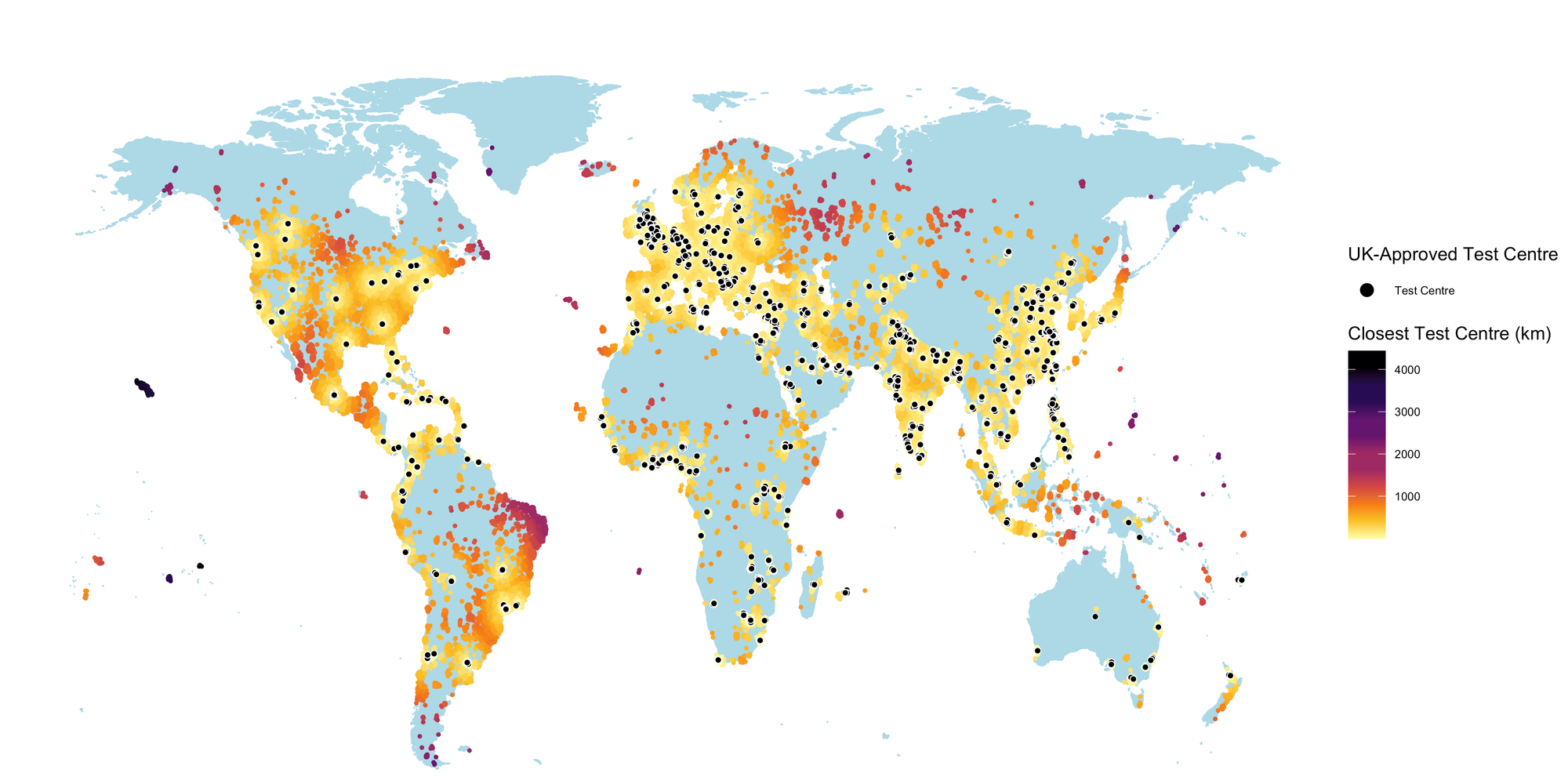
Globally, the DET has been taken in over 70,250 towns, cities and villages. By comparison, fewer than 500 cities host a UK-approved English testing centre.
In this blog, we consider the geographic distribution of DET test takers alongside UK-approved test centres*, and examine how digital exams extend the provision of English language testing to talented individuals everywhere.
Digital tests can help institutions broaden recruitment efforts
In 2016, the Duolingo English Test disrupted the high stakes English proficiency testing market by enabling test takers around the world to prove their English ability for high stakes purposes online, at home, and at a time of their choosing. Using AI, we were able to innovate every stage of the test development, delivery and assurance process to enable quicker, more accessible, more affordable testing, without compromising on academic rigour or security—all for a fraction of the cost of traditional tests.
Not only has this improved the test taker experience for aspiring international scholars worldwide, it means that universities have been able to broaden their recruiting efforts, drawing on a wider pool of talented students. DET test takers are progressing to study at the world’s leading universities, from Yale to Imperial, to McGill to Trinity College Dublin.
Capacity constraints restrict English language testing
While digital learning has progressed apace, assessment has fallen behind. Capacity constraints in English testing affect students every day. For traditional tests, it can take weeks and even months for a student to register for a test, sit the exam, and receive a certified score. This puts barriers in place for students wanting to submit complete application files, meet their English conditions, and make timely visa applications—and that assumes there is a test centre for them to use at all.
By contrast, a test taker can register for the DET, take the test and receive their results in just 48 hours; 12 if they pay for fast-track invigilation.
Globally, the DET has been taken in over 70,250 towns, cities and villages. By comparison, fewer than 500 cities host a UK-approved English testing centre.
Since it was launched eight years ago, the DET has administered millions of tests in over 230 countries and territories. During that time, international students have chosen the DET to meet their English language requirements in over 70,250 towns, cities and villages around the world. In 2023 alone, the DET was taken in almost 40,000 locations. By comparison, the network of 1,500 approved test centres are concentrated in just 450 cities worldwide. Prospective degree-level students are not restricted to just UK-approved test centres but it does provide a helpful proxy for understanding the coverage gains that digital testing enables.
There are 55 cities in the world that have hosted more than 5,000 DET test takers, and a further 200 with test taker volumes over 500. That leaves just shy of 70,000 cities that have hosted smaller populations of intrepid students that want to study internationally. In Burundi, Bujumbura had just over 500 students take the DET last cycle, as did Léon in Mexico and Freetown in Sierra Leone. In total, over 46,000 DET tests have been taken in countries without an approved test centre.
Even in some of the largest anglophone host countries in the world, where traditional English testing provision is strong, we still see high demand for digital tests. In Sydney (Australia), the DET has been taken over 2,000 times. Another ~2,000 have been taken in Manchester (UK), and nearly 7,000 in Winnipeg (Canada). From countries with no alternative testing provision, to those with some of the strongest provision, students continue to choose digital tests.
(Table: DET location counts in a sample of key markets)
Reaching talent beyond the metropolises
In the hunt for global talent—be it for students, researchers, scientists—we need to look far beyond the major cities. Only half of the Nobel Prize winners for Physics of the past decade hailed from major metropolises. Because it is accessible anywhere in the world, digital testing helps reach the best and brightest talent in even the remote corners of the globe.
China
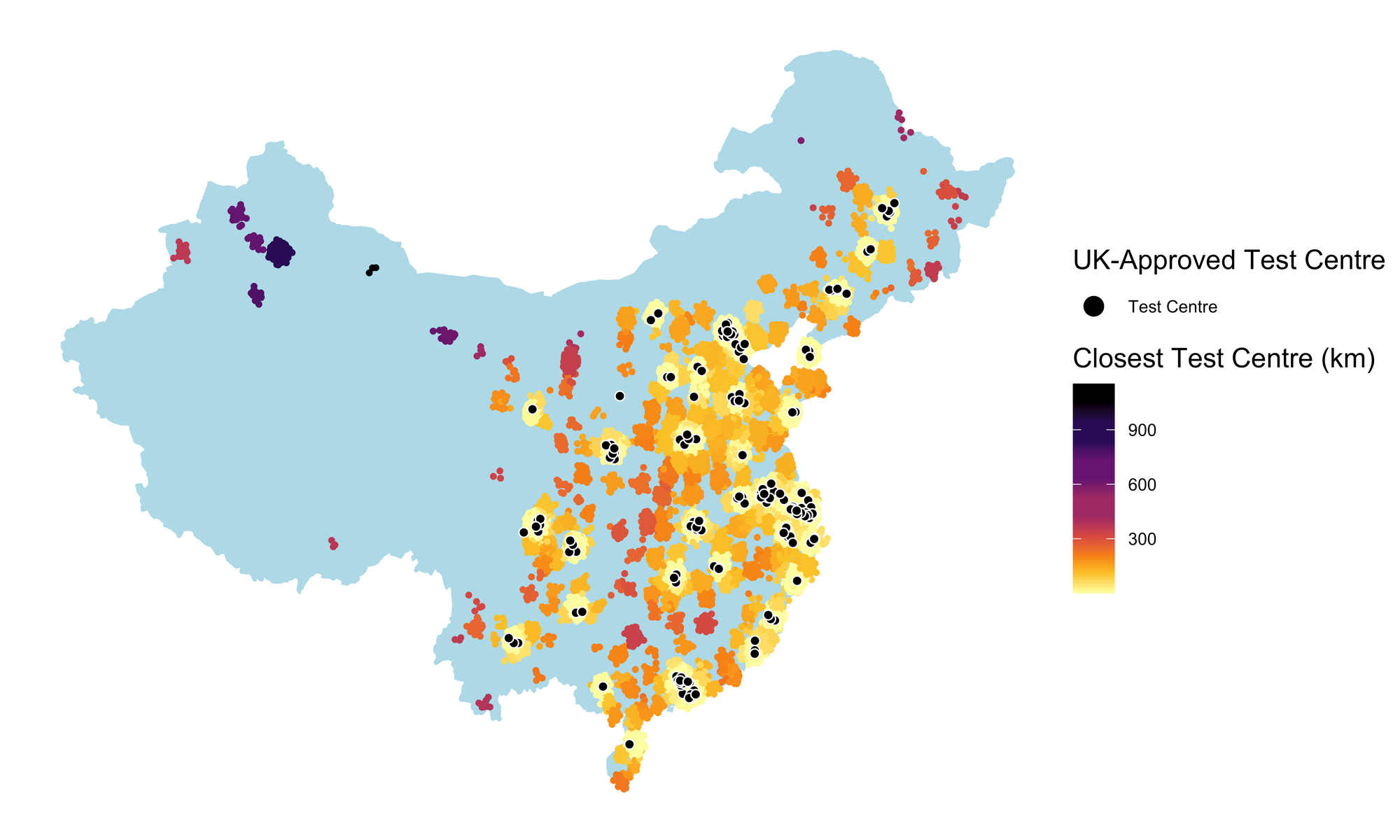
Brazil
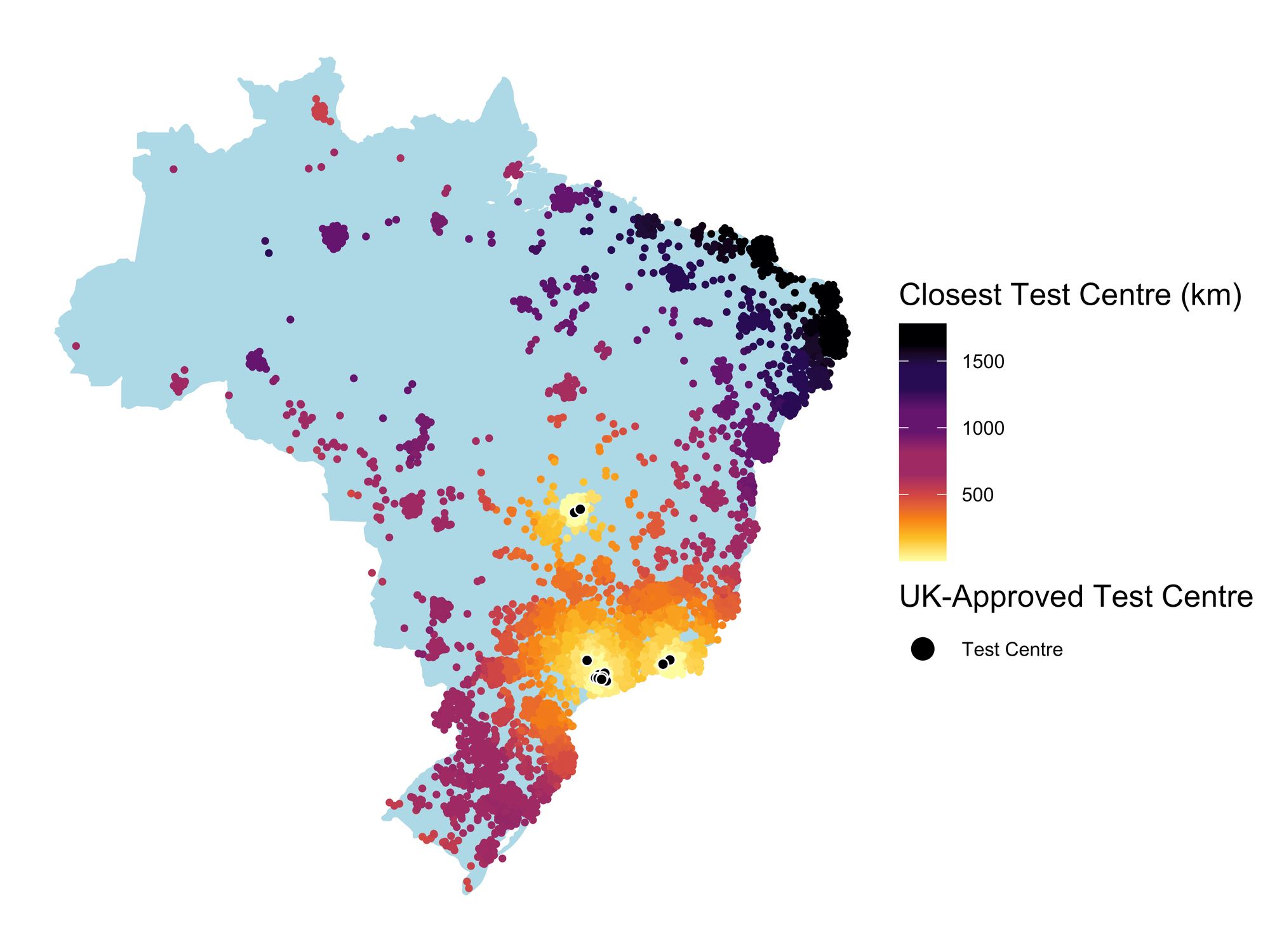
India
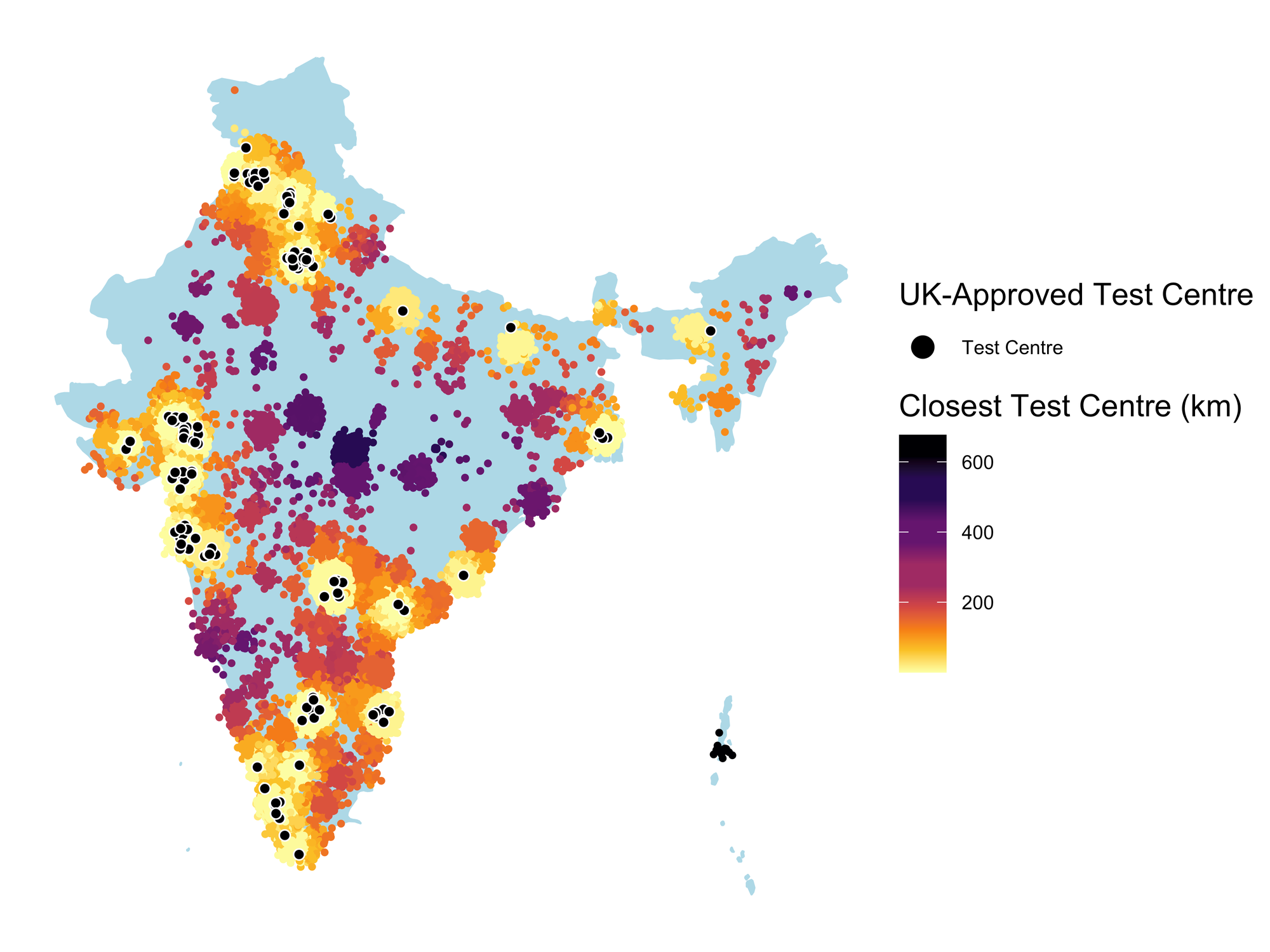
Regional spotlights
As we move into secondary and tertiary markets the need to consider test centre access becomes even more acute. Many countries may have only one or no test centre options at all. The map of sub-saharan Africa, home to the largest youth population in the world, is particularly revealing.
Sub-Saharan Africa
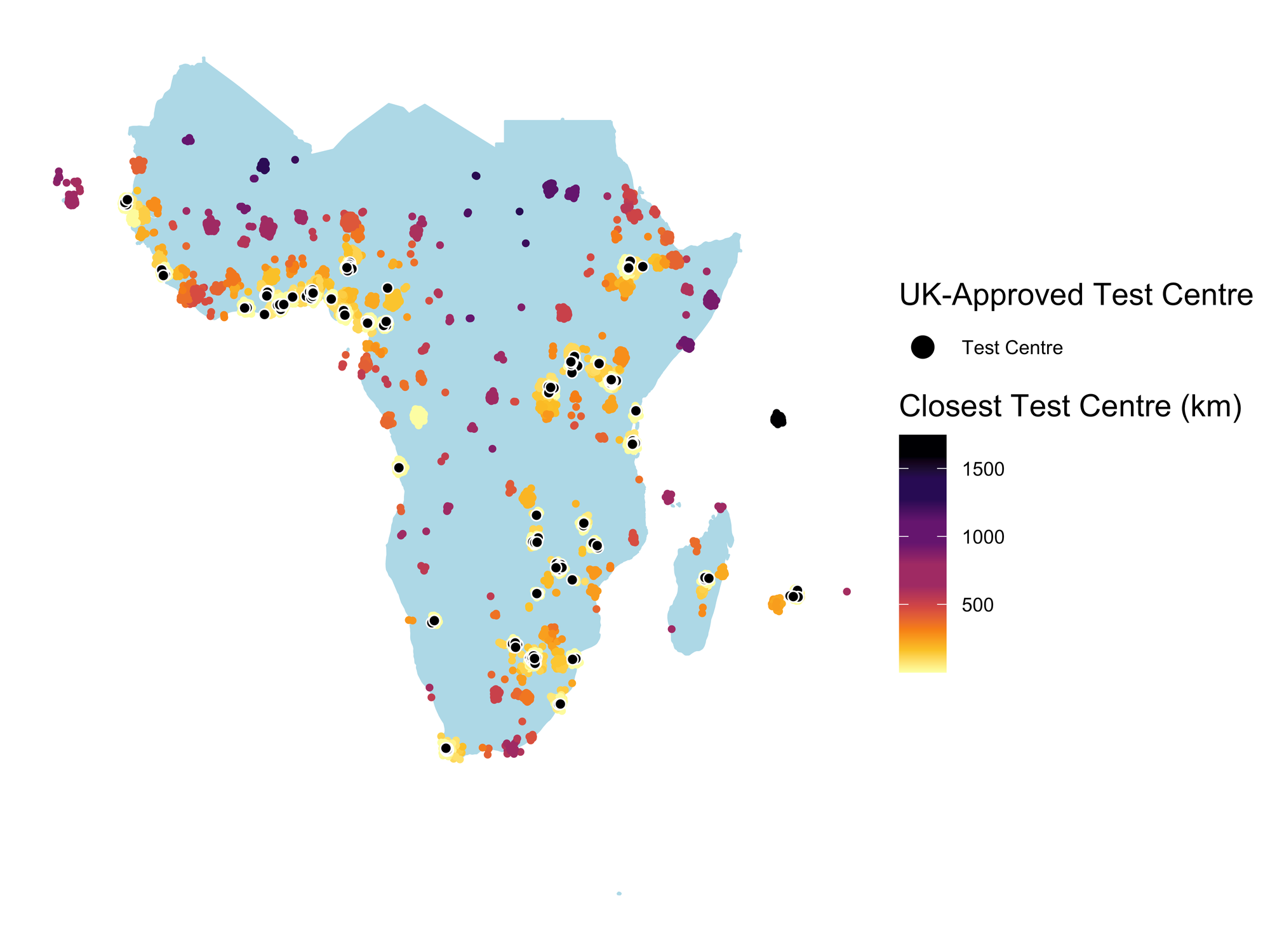
European Union
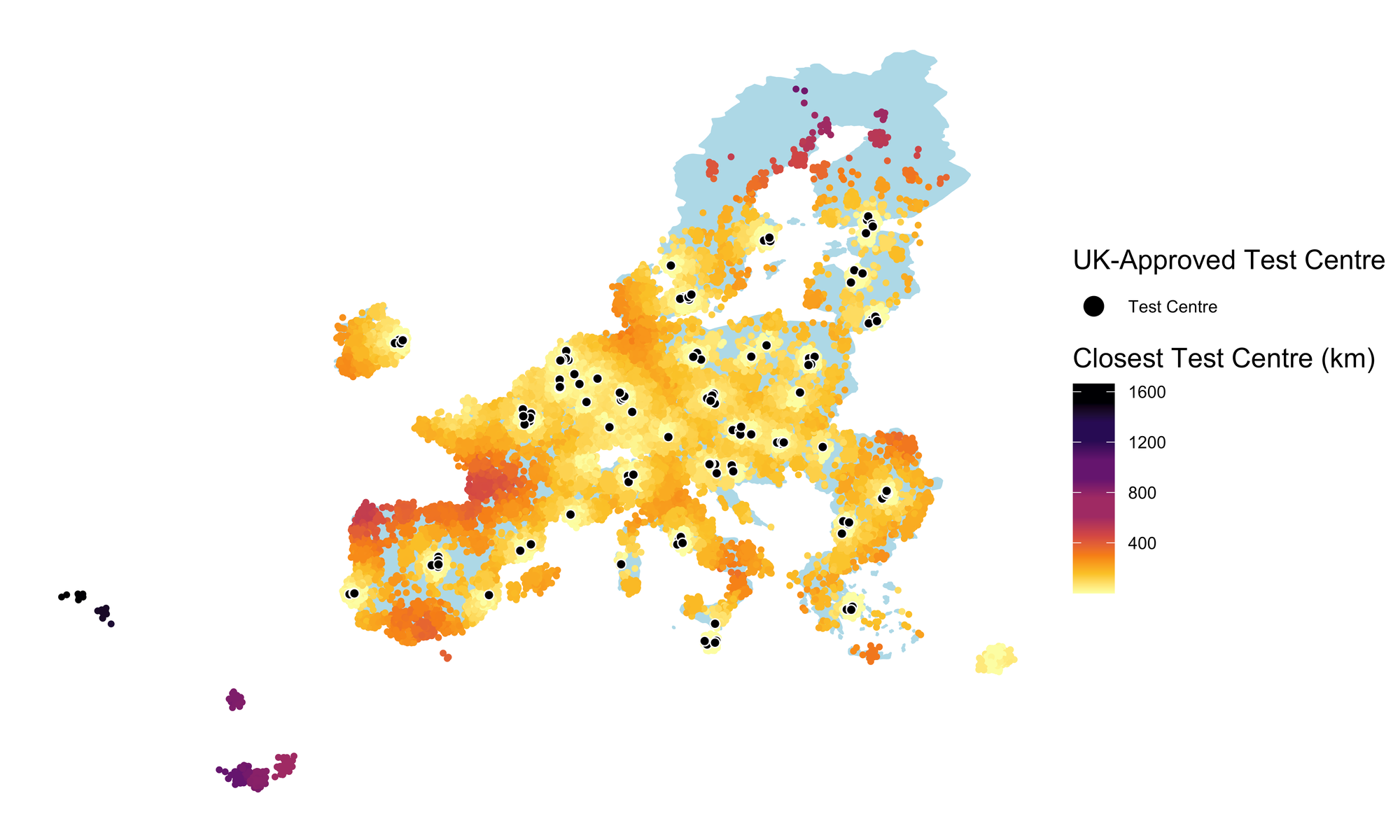
Southeast Asia
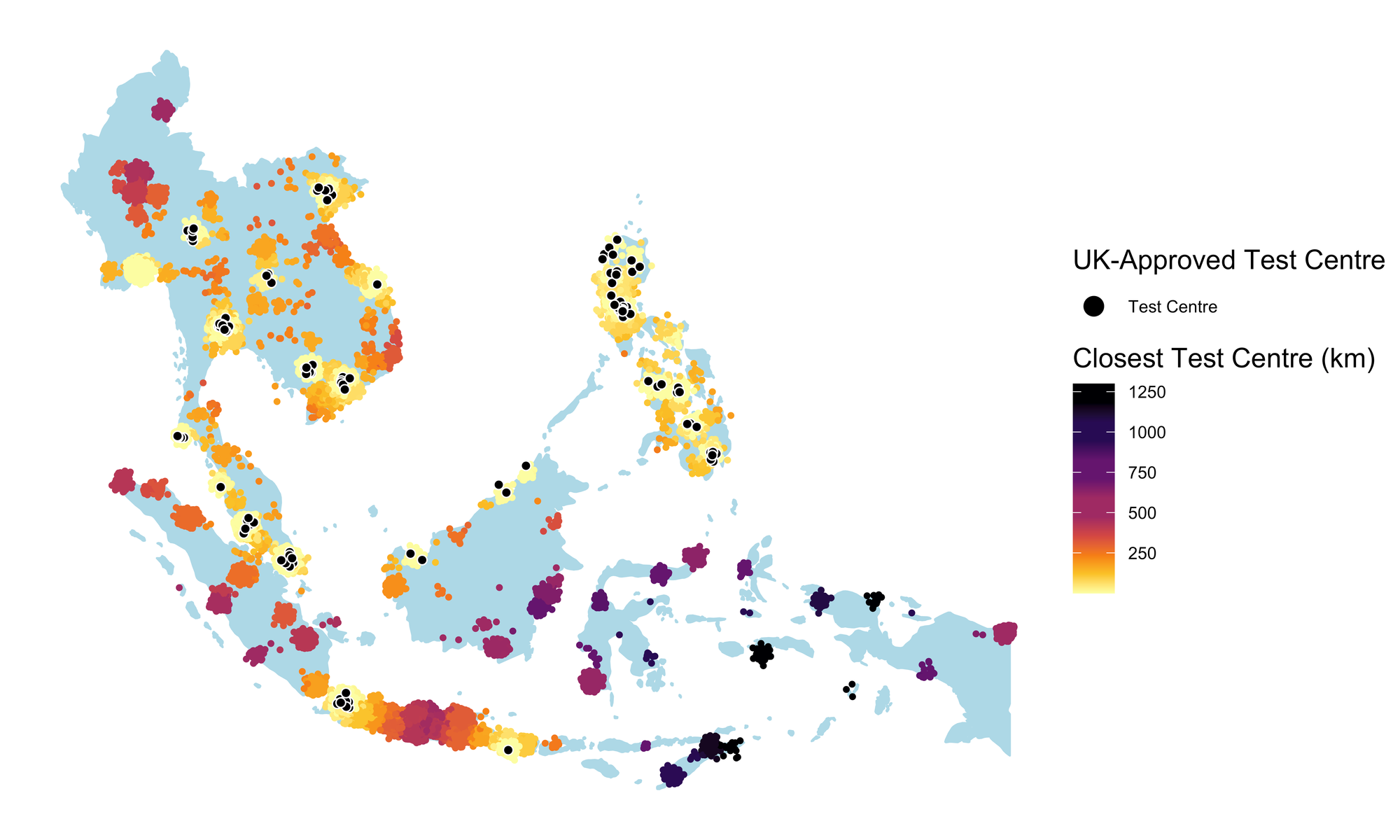
Increasing Access Through Diversification
All around the world, students aspire to study at international universities. The student recruitment industry has made decades of investment in the infrastructure that supports the international mobility of talented students, but that investment is concentrated in large cities. As institutions increasingly look to diversify their recruitment, it is clear that digital testing has an essential role to play in overcoming the structural barriers to the diversification of the international student body.
Footnotes
Authors:
Tamsin Thomas works to support the recognition of the DET in the United Kingdom. Dr Will Belzak is a Senior Psychometrician on the DET Assessment Research team.
*Method and definitions:
Test taker location data is based on the geolocation of IP addresses based on test uploads. In the graphics, the DET test takers' locations (multi-colored dots) have been jittered by ‘at most’ 1 degree in both latitude and longitude for privacy purposes. UK-approved English test centres refers to those approved by the UK government for immigration purposes. Approved centres have also been jittered to ensure the graphics do not under-represent UK-approved provision.
Further reading:
- White paper: Responsible AI Standards
- White paper: Duolingo English Test: Security, Proctoring, and Accommodations
- Guide: Duolingo English Test Getting Started Guide
- Guide: Duolingo English Test Technical Manual
- Blog: Can a standardised test really write itself?
- Blog: The DET: Machine learning-driven language assessment
- Blog: Can you cheat on the Duolingo English Test?
- Blog: How the DET proctors its online exam
- Blog: Why did we deliberately hack the DET?
- Blog: Born digital: How we leveraged HITL-AI to create a more secure high-stakes test